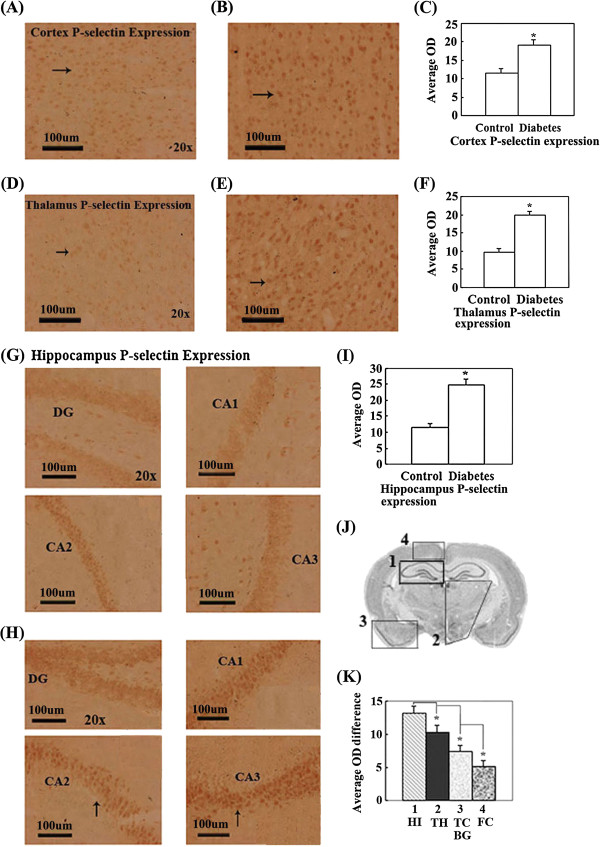Figure 5.
P-selectin expression in distinct brain regions were compared by measuring the OD of positive cells in brains of control and diabetic rat with immunohistochemical staining. (A). The representative image of P-selectin expression in the cerebral cortex of control rats. (B). The representative image of P-selectin expression in the cerebral cortex of diabetic rats. (C). The OD comparison of P-selectin expression positive cell in cerebral cortex between control and diabetes rats. P-selectin expression in the cerebral cortex of diabetic rats significantly increases compared with control rats (*P < 0.05). (D). The representative image of P-selectin expression in the thalamus of control rats. (E). The representative image of P-selectin expression in the thalamus of diabetic rats. (F). The OD comparison of P-selectin expression positive cells in thalamus between control and diabetic rats. P-selectin expression in the thalamus of diabetic rats significantly increases compared with control rats (*P < 0.05). (G). The representative image of P-selectin expression in the hippocampus of control rats. (H). The representative image of P-selectin expression in the hippocampus of diabetic rats. (I). The OD comparison of P-selectin expression positive cells in hippocampus between control and diabetic rats. P-selectin expression in the hippocampus of diabetic rats significantly increases compared with control rats (*P < 0.05). (J). Schematic representation indicates brain regions where P-selectin expression is significantly altered in diabetic rats and the rank order (from more to fewer) of expression quantity change in distinct regions of the integral brain. (K). The comparison of P-selectin expression quantity change in distinct brain regions. P-selectin expression quantity change is significantly different in distinct brain regions of diabetic rats (*P < 0.05). Bar = 100 μm.

